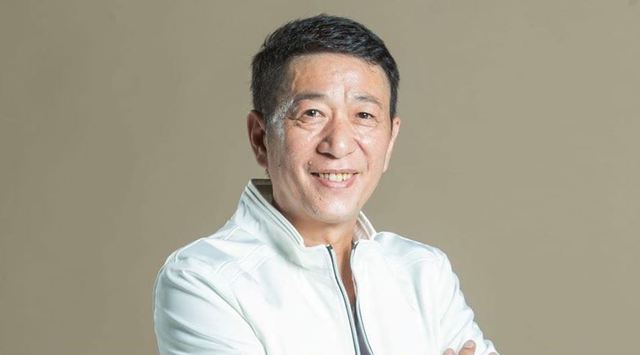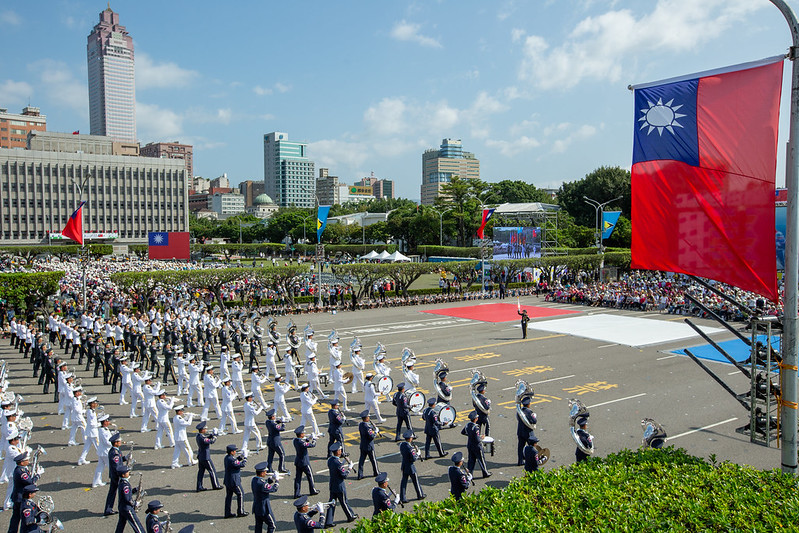The years ahead promise to be challenging ones for Taiwan. More than ever, its people need to engage the international community so that their nation’s complex situation and value to the world as a free democratic society are properly understood.
After a transformative 2016, which saw another peaceful transition of power in Taiwan, 2017 is now upon us and promises to be as, if not even more, eventful. A new administration will enter the White House in the U.S. later this month, and in China the Chinese Communist Party (CCP) will hold its party congress later this year, during which the next generation of party leaders will be selected. In Taiwan, President Tsai Ing-wen will continue to face several challenges, from reviving the nation’s stagnant economy to navigating the uncertain waters of the U.S.-Taiwan-China trilateral relationship to facing off with a Chinese leadership that seems intent on punishing Taiwan for the democratic choices its people have made.
As various factions and politicians jockey for positions ahead of the party congress in China, Chinese officials will have every incentive to demonstrate their firmness on Taiwan, which could create a rationale for a harder line in Beijing against the democratic island-nation of 23 million people and the government that represents them. Already there are signs that Beijing has decided to abandon the “diplomatic truce” that was installed during the Ma Ying-jeou administration and may seek to steal more of Taiwan’s official diplomatic allies.
Meanwhile, there are also indications that China, frustrated with the Tsai administration’s refusal to acknowledge the so-called “1992 consensus” and “one China” framework, could seek to further isolate Taiwan in global institutions. Just last week, Chinese officials warned that Taiwan might no longer be able to participate at international events under the sobriquet “Chinese Taipei,” an alternative name which, though unpalatable to many Taiwanese, had allowed Taiwan to join global institutions and multilateral events. Even more ominously, an editorial in the CCP mouthpiece the Global Times suggested that China could single out “advocators behind Taiwan independence and exert punishment,” a warning which, given China’s growing extraterritorial behavior, could put Taiwanese at risk of kidnapping or threaten their personal safety when traveling abroad. As I suggested in April 2016 following an incident in Kenya, China could use its vague National Security Law to compel friendly governments to extradite Taiwanese nationals to China to face prosecution for various “crimes” against the People’s Republic of China, such as “separatism.”
On the military front, China will continue to build up its capabilities while becoming increasingly assertive in areas it regards as its territory or natural “near abroad,” such as the East and South China Sea. This has already led to military deployments and exercises closer to the median line in the Taiwan Strait and near Taiwan’s ADIZ, as well as the rumored deployment of surface-to-air missiles on islets in the South China Sea and the recent voyage of China’s first operational aircraft carrier, the Liaoning, in the West Pacific and into the South China Sea. Hardline CCP mouthpieces, meanwhile, will continue to call for military action against Taiwan, while its security organs and propaganda organizations will intensify their operations to penetrate Taiwan, undermine its democratic institutions, and isolate it internationally by calling on its security partners to abandon it and cease selling it the weaponry it needs to defend itself. As we saw earlier, the upcoming party congress in China could, if only temporarily, encourage decisionmakers in Beijing to adopt punitive policies against Taiwan that, in normal times, likely would not have been regarded as advisable options.
Amid all this, the Tsai administration will need to secure proper budgets for its ambitious Indigenous Defense Submarine program, ensure proper training, and square the circle of an all-volunteer program that has been stalled for years due to low enrolment. The Taiwanese government will also have to find a proper equilibrium between expanding a domestic defense industry and acquisitions of defense articles from the U.S., which beyond their defensive value are also symbolically important politically. Whether the Trump administration will prove more amenable to providing Taiwan the weapons it needs to defend itself and to form a closer military alliance with its longstanding Asian ally, or will treat Taiwan as a “bargaining chip” in negotiations with Beijing, are questions that will only be answered in the coming months and years.
On the domestic front, the Tsai administration will also face several challenges that, if mishandled, could prevent it from consolidating its base so that it can face the challenge posed by China with confidence. From incomplete transitional justice to land rights issues, marriage equality to pension and judicial reform, many issues will sap the government’s resources and draw attention to the ever-important aspects pertaining to the quality of Taiwan’s democracy, which is a key component of the nation’s “firewall” against China.
Given all this uncertainty, Taiwan Sentinel could not have launched at a better time. Bringing together experts from Taiwan and around the world, the Sentinel will endeavor to make sense of it all and to address the many blind spots and misperceptions that often characterize international coverage of the Taiwan Strait. With clear, educated and timely analyses, features, commentary pieces and book reviews in English, Chinese and Japanese, the Sentinel will help foreign government analysts and decisionmakers, journalists, academics and the general public better understand Taiwan and the politics of the Taiwan Strait at a level unlike anything available in mainstream media, while doing so in a language that is accessible to all. It will also aim to act as a bridge between younger generations of Taiwanese — the nation’s future leaders — and a foreign audience that rarely gets a chance to hear from them.
The Sentinel operates on the premise that as an immigrant, multicultural and diverse liberal-democracy, Taiwan is a sovereign entity that deserves to be understood in its own right and, above all, that must remain free and independent.
You might also like
More from Taiwan Politics
President Tsai’s Second Term and Cross-Strait Relations: What to Watch Out For
The next four years will be marked by uncertainty over China’s trajectory and the state of the world in the …
Candidate Claims ‘Nobody Loves Taiwan More Than Xi Jinping’
Family business connections in the Pingtan free-trade zone and a son’s involvement with the CPPCC are raising questions about possible …
Above All, The Legitimacy of Taiwan’s Democracy
Since democratization, the main political parties in Taiwan have agreed to rules of the game which have served to legitimize …









